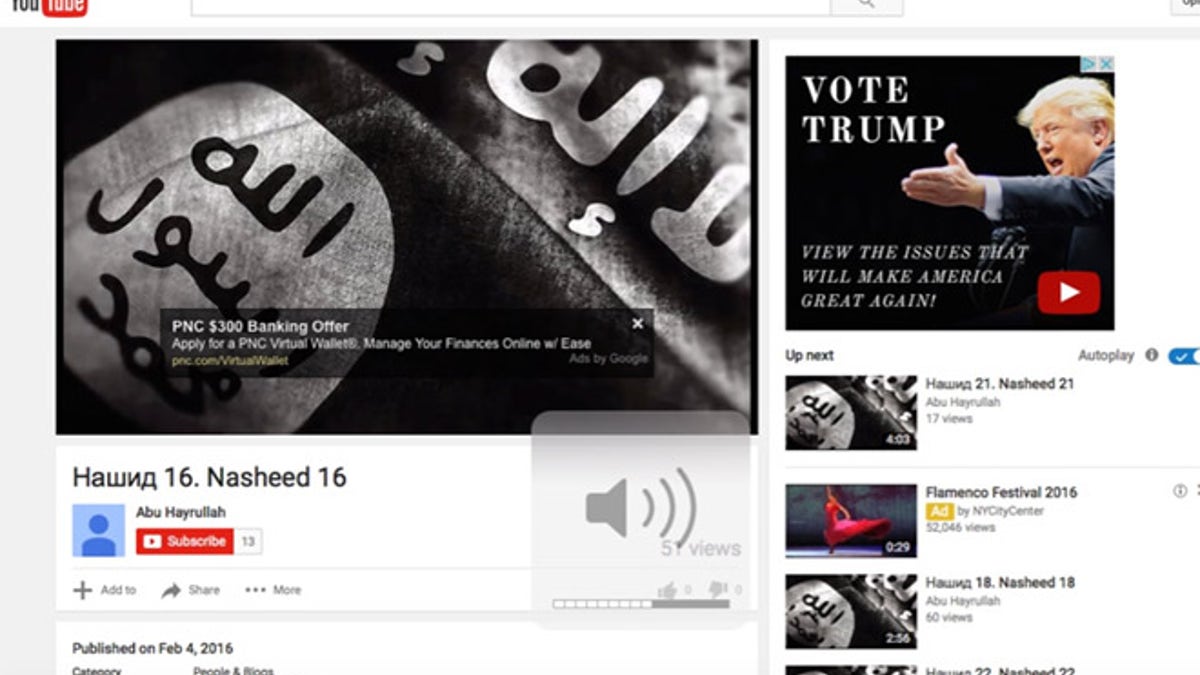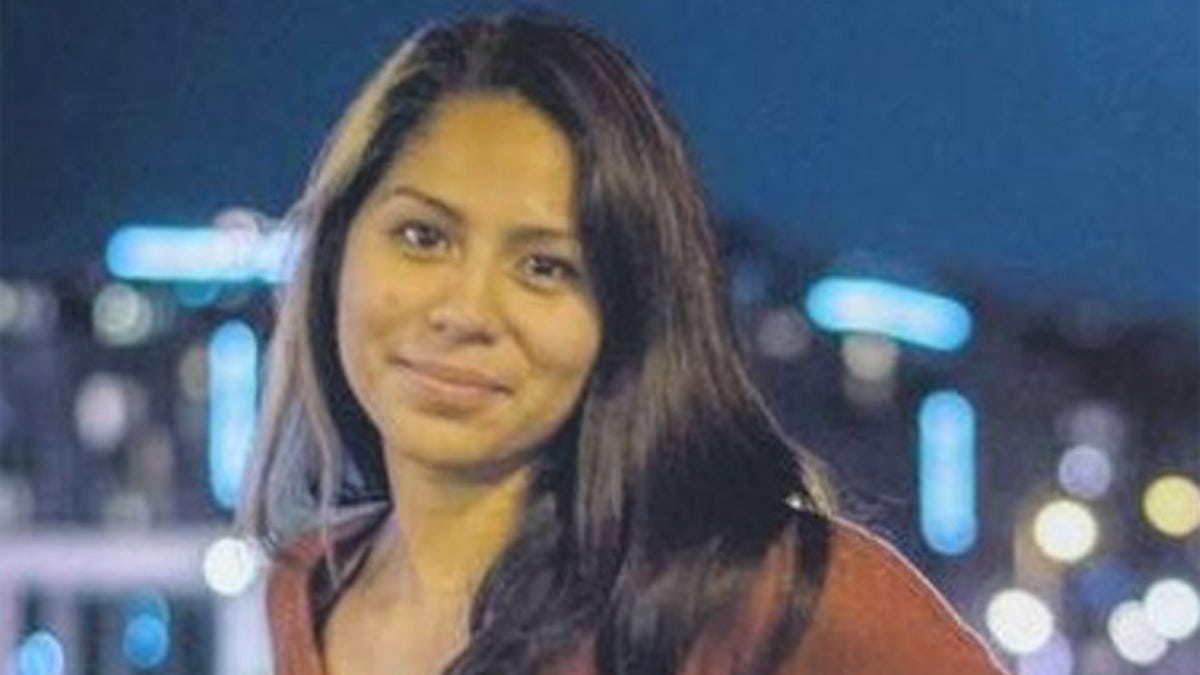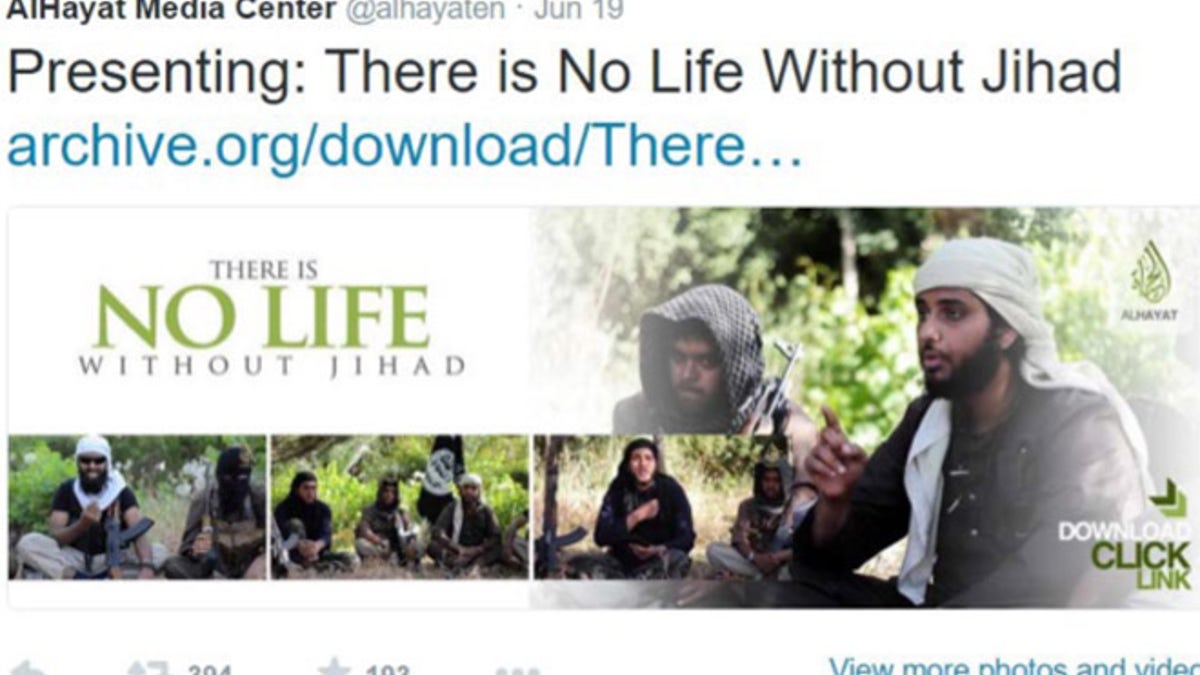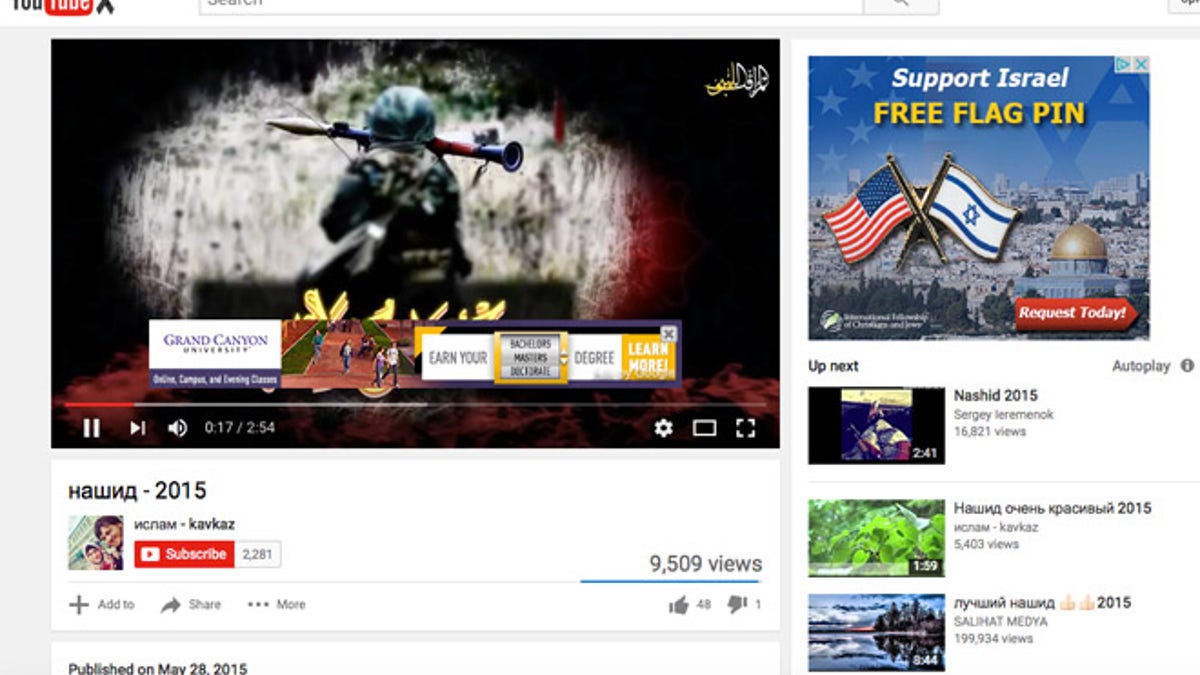
This political ad for Donald Trump appeared for months on an ISIS-linked YouTube page, according to one software expert. (Screengrab)
The family of the sole American killed in last fall’s coordinated terror attacks in Paris filed a suit in federal court Tuesday, charging that Google, Facebook and Twitter have allowed their social media platforms to be used to recruit jihadists and even profited from advertisements on Islamist propaganda.
The case, filed in U.S. District Court in San Francisco by the family of Nohemi Gonzalez, alleges that Google, through its YouTube subsidiary, profits by putting ads on video posted by groups like ISIS and Al Qaeda, and Facebook and Twitter also insert ads on terrorist pages and posts.

Nohemi Gonzales was 23 and studying abroad when she was killed by terrorists in Paris. (Courtesy: Reynaldo Gonzales)
“How many more innocent people need to die before Google, Facebook and Twitter are prohibited from making money by publishing messages from known terrorists?” said Reynaldo Gonzalez, whose 23-year-old daughter was studying abroad at the Strate College of Design in Paris when she was killed at a trendy Paris bistro called La Belle Équipe. “It is bad enough that I lost my daughter at the prime of her life, but to think that she died in vain is more disturbing.”
Some 129 people were killed and 368 injured in separate attacks targeting the restaurant, a music hall and a soccer stadium. The attacks were carried out by a Brussels-based ISIS cell.

Twitter pages touted as official ISIS media organs gather tens of thousands of followers before they are sniffed out and taken down, according to the suit. (Screengrab)
The lawsuit aims at the heart of Internet companies’ responsibility for content posted on their sites and how they balance that with access and free speech for peaceable users. All of the U.S.-based web companies have systems in place to purge objectionable material, including recruitment messages, posted by users, but propagandists can simply create new accounts when old ones are taken down. The video ads are placed automatically, and the social media and Internet companies say they make reasonable efforts to police their platforms of objectionable material.
Gonzalez is represented by Michigan-based law firms 1-800-LAW-FIRM and Excolo Law.
“These companies are sharing funds with ISIS,” said Ari Kresch, an Excolo attorney working on the case. “ISIS claims responsibility for the Paris attack and it was on these social media sites that the recruiting efforts took place.”

The automated ads can create odd juxtapositons, such as an ad for pro-Israel pins appearing on an ISIS-linked channel.
Under YouTube’s business model, ads are placed automatically on videos posted by users, and users with widely followed channels even get a cut of the profits. The arrangement has led to some embarrassing instances where paid ads were inserted on some of ISIS’ most grisly propaganda videos before they were discovered and taken down.
ISIS accounts on Twitter have grown at an “astonishing rate” since 2010, the lawsuit states, adding that the 140-character platform has been used by ISIS to boast of its exploits and recruit new members. The suit charges that known ISIS Twitter accounts accumulated tens of thousands of followers before they are taken down.
Google, Twitter and Facebook did not respond to media inquiries about the lawsuit or accusations on Tuesday, but this isn’t the first time these social media platforms have been accused of being partners in spreading messages of terror and hate. However, finding them legally culpable is a tall order, according to one expert.
"It will be tough to hold social media companies responsible merely for providing a marketplace where the mix of ideas includes incitement," said Cornell University Law Professor William Jacobson, who publishes the blog LegalInsurrection.com. "To have any chance of success, the plaintiff would have to show a more direct connection not only to the incitement, but to the actual conduct.
"Even then, I think it is a stretch unless there is a more direct connection shown to supporting an act of terror," Jacobson added.
FBI Director James Comey has said ISIS uses American social media “to crowdsource terrorism” and “to sell murder.” The Brookings Institute, a nonprofit policy research think tank, agrees that social media has helped drive the growth and influence of groups like ISIS.
“ISIS has been able to exert an outsized impact on how the world perceives it, by disseminating images of graphic violence …,” the institute said in a recent report.
A spokesman for U.S.-based company GIPEC, whose software is used by law enforcement to identify terrorist-related pages and track piracy, counterfeiting and pornography, said it is possible to keep social media safe for free speech while blocking terrorists from using it to spread hate and recruit killers.
“Terrorist organizations are spending time and money and using these American social media platforms to recruit and incite sympathizers and ‘lone wolves’ here in the U.S., Israel and around the world,” said the spokesman, who asked not to be named. “The social media companies supported by advertising revenue have a moral responsibility to make their platforms safe.”
Veryan Khan, editorial director for the U.S.-based Terrorism Research & Analysis Consortium, is cautious about an approach that simply takes terrorist accounts down, as those sites and posts may contain useful information for law enforcement. She believes the answer to dangerous social media speech is “counter narratives” that dilute and oppose hate.
Gonzalez is ready to see the issue decided in court, and hopes it can bring about a positive outcome from her death.
“I filed this lawsuit to save others from terrorists that rely on social media to plan their attacks on innocent people,” he said.
